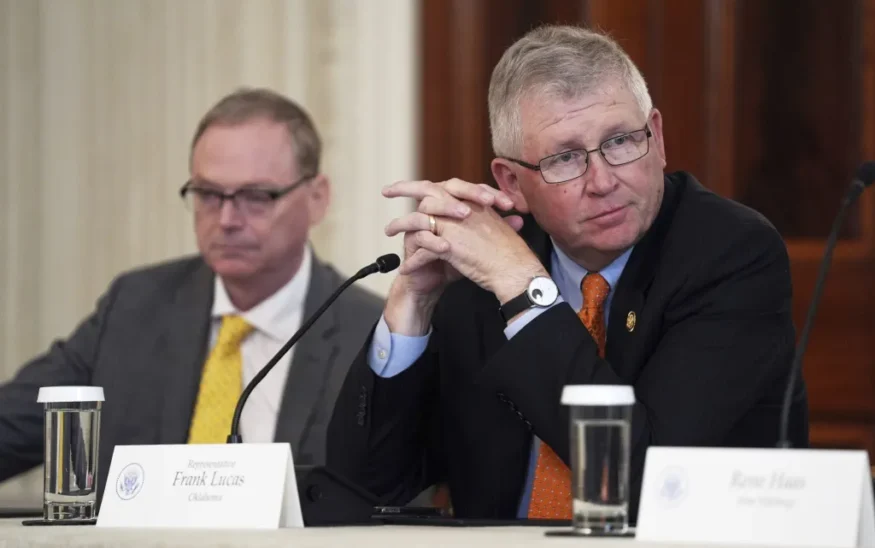A Native American nation in Oklahoma has expressed strong opposition to a funding request by Congressman Frank Lucas aimed at renovating the Oklahoma and Central Plains Agricultural Research Center, known as OCPARC. The Cheyenne and Arapaho Tribes view the proposed allocation of $16.6 million not just as an investment in research but as a tactic to block their longstanding efforts to reclaim approximately 10,000 acres of land that has been under federal ownership for over 150 years.
The land in question, located near El Reno, is currently managed by the U.S. Department of Agriculture. The tribes have been advocating for the return of this land, asserting that they have not been adequately compensated. Governor Reggie Wassana of the Cheyenne and Arapaho Tribes has accused Lucas of deliberately hindering negotiations and avoiding collaboration with tribal leaders.
“We have offered everything and tried to do everything and bend as much as we can, but nothing is ever good enough for him to say, ‘Yeah, let’s work the deal together, we can be partners,’” Wassana stated. Lucas has not publicly responded to these allegations. His request for funding marks a substantial increase compared to the $1.3 million he sought for similar projects in 2023 and 2024.
The description of the project on Lucas’ website indicates that the renovations would enhance OCPARC’s capabilities, focusing on improved plant genetics, sustainable beef cattle production, and environmental safety. “Repairs to these facilities will promote OCPARC into a world-class facility benefiting all communities in OK-03 and all communities on the Central Plains,” it asserts.
Wassana has had discussions with Interior Secretary Doug Burgum regarding the potential transfer of land, and the Biden administration has expressed a commitment to exploring a viable solution for the tribes. However, a provision in the farm bill, legislation championed by Lucas, currently obstructs any change in land ownership until a funding deadline, which is set for the end of September 2023.
Wassana emphasized that the ongoing research efforts appear to prioritize control over genuine public benefit. “Keeping some type of research going, to me, it’s more of a control issue than it is doing what’s right for the general public,” he commented. He plans to reach out to federal departments to accelerate negotiations, especially as the funding deadline approaches.
The governor envisions an outcome where the Cheyenne and Arapaho Tribes can partner with the USDA. This would allow the department to continue its agricultural research while granting the tribes ownership of the land. Wassana mentioned aspirations for developing the area for various uses, including raising cattle, growing crops, oil drilling, and creating entertainment or manufacturing facilities.
Additionally, he has proposed collaborative research initiatives to the USDA, such as studies on bison, which could create job opportunities for tribal members. “I just really feel that the best possible use and the best possible stewardship of the property, still hand in hand, would best fit the tribes and the local communities,” Wassana concluded. He also believes that local communities support the tribes’ claim to the land.
The USDA has not yet responded to requests for comment on this matter. This ongoing dispute reflects broader conversations about land rights and indigenous sovereignty within the United States, highlighting the complexities of federal and tribal relationships.
